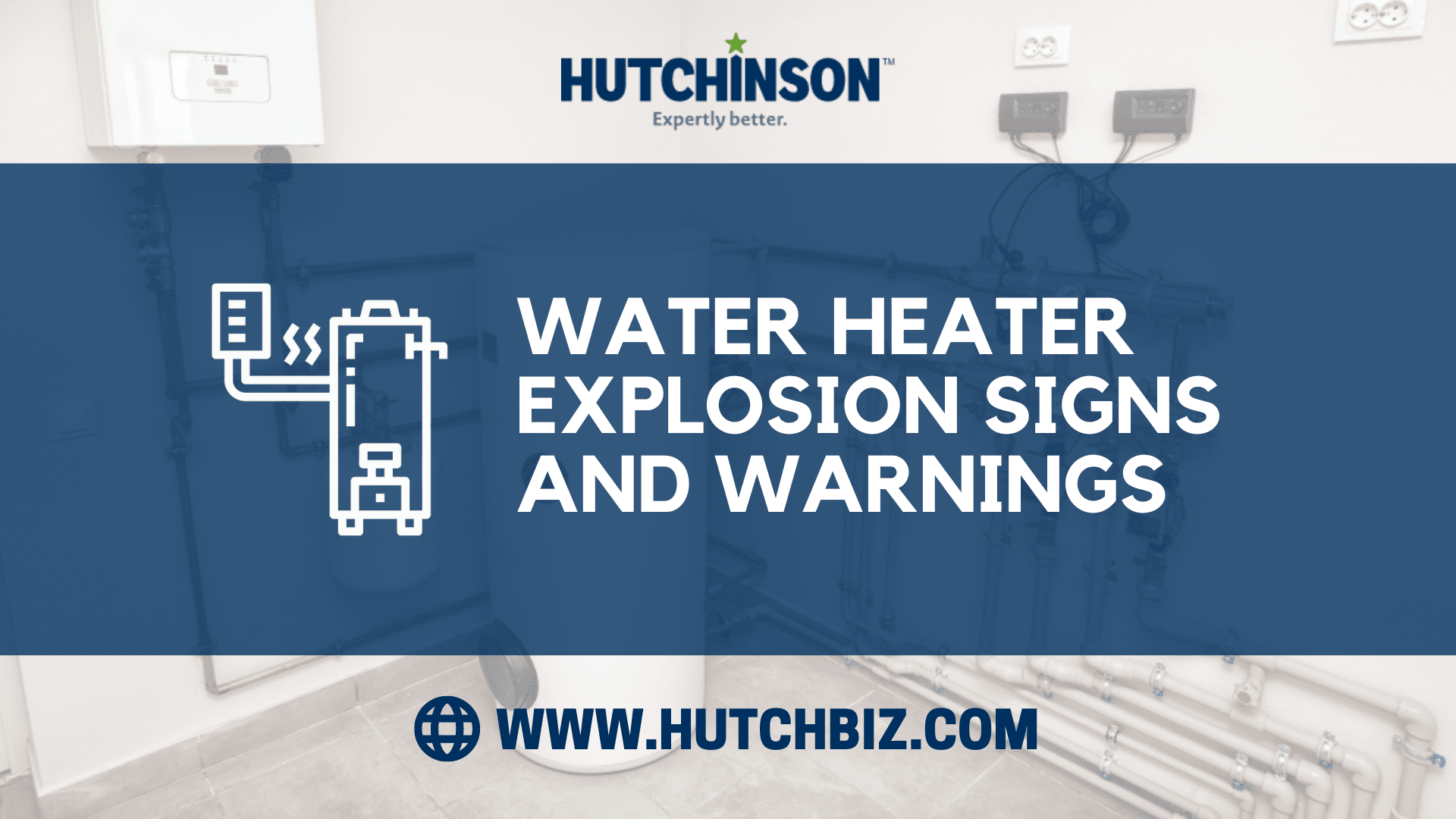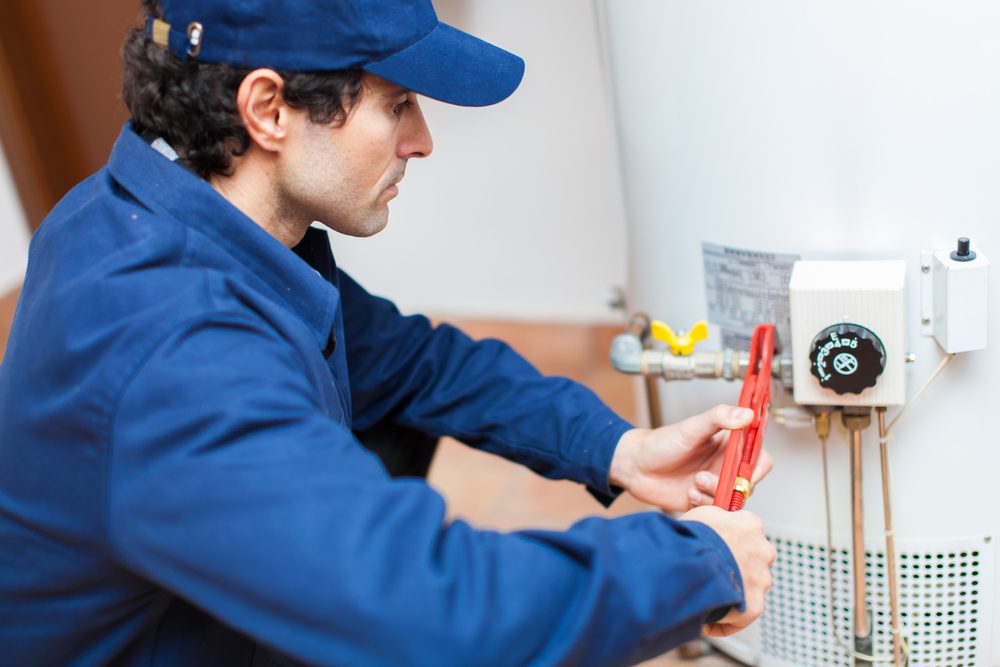
A water heater explosion is something many homeowners fear and that no homeowner should have to deal with. Such an event is dangerous and can even lead to loss of life. Because of this, homeowners need to protect themselves.
To protect against the potential danger of a water heater explosion, having knowledge about how they occur is crucial. This article aims to explore this topic in-depth, providing you with the information you need to prevent such an incident from occurring.
Why Is a Water Heater Explosion So Dangerous?
A water heater explosion is incredibly dangerous because nearly every aspect of it presents some sort of danger. The explosion can knock you off your feet and generally presents a danger. The water from the explosion is scalding hot and can leave you with burns. Finally, the water heater is made of metal, which can turn into dangerous shrapnel in an explosion. Any one of these things would be dangerous on its own; together, they are an absolute disaster.
The explosion also causes property damage. After an explosion occurred in a house in New Jersey, the house was left uninhabitable.
Water Heater Explosion Causes
Water heaters typically do not explode randomly, as there are usually factors that contribute to the explosion over time. Pressure is often a critical factor in causing a water heater to explode. If the pressure builds up within the unit to an unbearable level, an explosion can occur. Additionally, a water heater can explode due to a fire. If the unit or the area around it catches fire, it can lead to a catastrophic explosion.

7 Warning Signs of Water Heater Explosion
Luckily, the fact that water heaters don’t just randomly explode means that there are signs you can watch out for. Knowing how to identify when a water heater is dealing with a problem can allow you to solve the problem before it leads to an explosion.
1. Leaking Pressure Relief Valve
Water heaters have a pressure relief valve so that when the pressure within the heater gets too high, the valve will release water. This reduces the pressure to a more stable level.
If this valve is regularly leaking, it indicates that the pressure within is too high on a regular basis. If this is the case, your water heater should be examined to determine the problem.
2. A Consistent Popping Noise
Water isn’t just water. Almost all water has some minerals and sediments within it. Your home’s filtration system usually captures these. However, the filter could stop working, or something else could go wrong. If so, these minerals and sediments will make their way into your water heater.
Once in the water heater, sediments will start to build up. If they do, they can block the pressure relief valve and cause an explosion. Plus, before doing so, they will cause your water heater to be more inefficient, as it has to work more to heat the sediment-filled system.
3. Rotten Egg Odor
Natural gas is naturally odorless. However, to allow humans to detect gas leaks, a chemical compound is added to gas to give it an odor. To let people know that this odor is something terrible, the chemical compound chosen is designed to make it smell bad. Most people describe it as smelling similar to rotten eggs.
Detecting a scent similar to rotten eggs near your water heater could indicate a gas leak. It is crucial to seek immediate help in this situation since a gas leak is hazardous and could result in a fire that could cause the water heater to explode.
4. Brown Water

If the water in your house is brown, it likely contains sediments or materials from rusty pipes. You already know that sediments like these can build up in your water heater and create a clog. So, if you have brown water, you need to be worried about too much pressure in your water heater.
5. Gas Leak
To avoid the harmful effects of carbon monoxide, it is recommended to have a carbon monoxide detector located near your water heater. This detector can also help identify the presence of a gas leak, which can create the ideal conditions for a fire leading to a water heater explosion. It is essential to address any such issues as soon as possible.
6. Improper Bad Installation
A lousy installation job gets your water heater off on a bad start. Improperly installed lines have the potential to leak, which releases gas into the air, or get clogged, which causes a buildup of pressure. These are serious problems that will lead to the water tank exploding.
In some cases, a bad installation can be fixed by experts. However, if the problem is severe, an entirely new water heater installation may be necessary.
7. Neglecting Routine Maintenance

Maintenance is a vital part of owning a water heater. No water heater should go too long without maintenance.
When you get maintenance, the professionals in charge of the maintenance can look for issues. If they find any, they can repair them before the issues have a chance to balloon into anything serious.
Tips for Stopping Water Heater Explosions
To keep your water heater and yourself safe, you should take a few precautions to prevent an explosion. These take some time out of your day but will save you in the long run.
Make sure to run the system properly. Always run it at the correct temperature and make sure it does not exceed this temperature. In addition, take time to check the valves to see that they are working correctly.
Outside of this, ensure the water heater is inspected and serviced. This should happen once a year.
Trust Hutchinson for Keeping Your Water Heater in Good Shape
If you want to have your water heater looked at, look no further than Hutchinson. We are experts at dealing with water heaters and fully understand how to keep you safe from a hot water heater explosion. We can repair your current system as necessary or help install an entirely new one. Schedule an appointment online to keep you and your loved ones safe.

